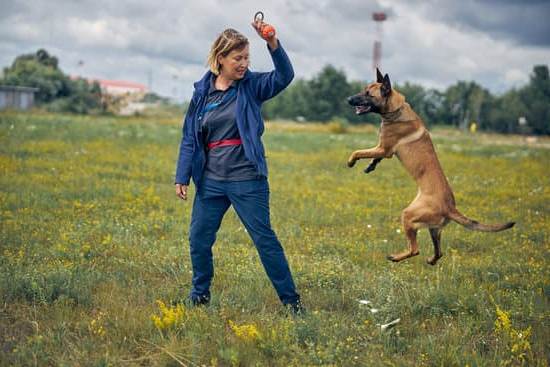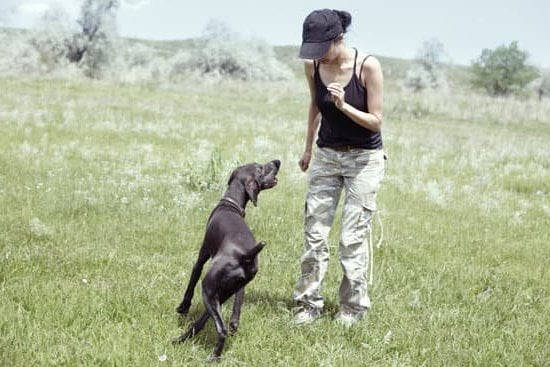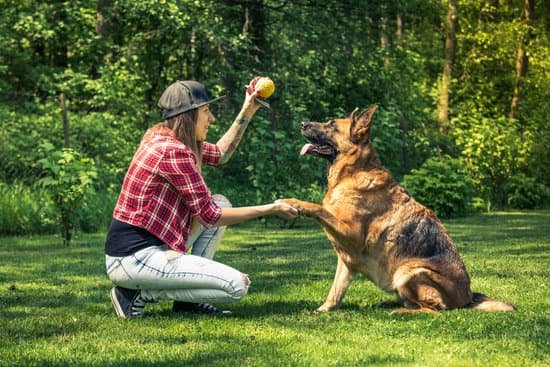Chicago, known for its bustling city life and growing pet community, has seen a rise in the importance of dog training. With an increasing number of furry companions residing in the urban setting, it has become crucial to ensure that these dogs are well-behaved and obedient. For this reason, many pet owners are seeking professional dog training services in Chicago to address behavioral issues and instill good manners in their four-legged friends.
In this comprehensive guide, we will delve into the world of dog training in Chicago, exploring the top training centers in the city, different training methods available, and the benefits of professional obedience training in an urban environment. Additionally, we will uncover real-life success stories and case studies to inspire pet owners, as well as provide DIY training tips for those who prefer teaching their dogs at home.
Whether you’re a seasoned pet owner or a first-time dog parent, understanding the significance of dog training is essential for creating a harmonious relationship with your furry companion. Join us as we explore the impact of dog training on the canine community of Chicago and discover why it’s an indispensable endeavor for both pets and their owners.
The Top Dog Training Centers in Chicago
When it comes to finding the best dog training centers in Chicago, pet owners have a variety of options to choose from. From traditional obedience training to specialized programs for behavioral issues, the city’s canine community benefits from a wide range of professional services.
Positive Paws Pet Training
One of the top dog training centers in Chicago is Positive Paws Pet Training, known for its positive reinforcement-based methods. With a team of certified trainers, they offer group classes and private sessions to address various behavioral and obedience issues. Their commitment to force-free training has made them a popular choice among Chicago pet owners.
Chicago Canine Academy
Another highly reputable dog training center in Chicago is the Chicago Canine Academy, which offers comprehensive obedience and behavior modification programs. They utilize balanced training methods tailored to each dog’s specific needs, helping them thrive in an urban environment. The academy also provides specialized services for working dogs and therapy dogs.
Karen Pryor Academy for Animal Training & Behavior
For pet owners seeking a more advanced approach to dog training, the Karen Pryor Academy for Animal Training & Behavior in Chicago offers courses designed for those interested in pursuing careers as professional trainers. Their curriculum focuses on positive reinforcement techniques and the science behind animal behavior.
Choosing the right dog training center is essential for ensuring the well-being and obedience of your canine companion. Whether you’re looking to address specific behavioral issues or simply improve your pet’s manners, these top training centers in Chicago can provide the expertise and support needed for successful dog training chicago.
Understanding the Different Dog Training Methods Available in Chicago
When it comes to dog training in Chicago, there are several different methods available to meet the needs of every pet owner and their furry friend. Understanding these various training techniques can help you choose the best approach for your dog’s unique personality and behavior.
One popular method of dog training in Chicago is positive reinforcement, which involves rewarding your dog for good behavior with treats, praise, or toys. This method focuses on reinforcing positive actions rather than punishing unwanted behaviors. Positive reinforcement has been proven effective in teaching dogs new commands and encouraging obedience.
Another common dog training method in Chicago is clicker training, which involves using a clicker device to create a distinct sound that indicates when a dog has performed a desirable behavior. The clicker is paired with a reward, such as a treat, to reinforce the action. Clicker training is known for being highly effective in shaping specific behaviors and improving communication between owner and dog.
In addition to these positive-based methods, Chicago also offers more traditional obedience training techniques such as leash-based correction and aversive reinforcement. While these methods have been used for years and may be suitable for certain dogs, many trainers and pet owners now prefer modern positive reinforcement techniques for their effectiveness without causing stress or fear in dogs.
| Dog Training Methods | Overview |
|---|---|
| Positive Reinforcement | Rewards good behavior with treats, praise, or toys |
| Clicker Training | Uses a distinct sound to reinforce desired behaviors |
| Obedience Training | Includes traditional leash-based correction and aversive reinforcement |
The Benefits of Professional Dog Training in the Urban Setting of Chicago
Professional dog training in urban Chicago is essential for the well-being and safety of both dogs and their owners. The bustling city environment poses unique challenges for our furry companions, from navigating crowded streets to encountering diverse stimuli. Utilizing the expertise of professional trainers can help address these challenges effectively, ensuring that dogs are well-behaved, confident, and happy in their urban surroundings.
One of the primary benefits of professional dog training in Chicago is the development of good manners and obedience skills. This is particularly important in a city setting where dogs need to be well-behaved around other pets, pedestrians, and distractions. With the proper training, dogs can learn to walk calmly on a leash, come when called, and follow basic commands, making daily life in the city more manageable for both them and their owners.
Additionally, professional dog training in Chicago can help address behavioral issues that are common in urban environments. This may include fearfulness or aggression towards strangers or other animals, excessive barking due to environmental stimuli, or anxiety related to city noises. Trainers who specialize in urban dog behavior can work with pets to desensitize them to these triggers and help them develop coping mechanisms for navigating city life.
Finally, professional dog training in Chicago also provides opportunities for socialization and mental stimulation for pets. In a densely populated city like Chicago, it’s crucial for dogs to be comfortable around other animals and people. Through group classes or one-on-one sessions with trainers, dogs can learn how to interact positively with others and channel their energy into constructive activities.
| Benefit | Description |
|---|---|
| Good manners and obedience skills | Dogs learn important skills such as walking on a leash calmly and following basic commands. |
| Behavioral issue resolution | Trainers address common behavioral issues seen in urban dogs like fearfulness or aggression towards strangers. |
| Socialization and mental stimulation | Training provides opportunities for dogs to interact positively with others while staying mentally engaged. |
Real-Life Success Stories of Dog Training in Chicago
Chicago is a city filled with dog lovers who are dedicated to providing the best care and training for their furry companions. With a myriad of dog training centers and professional trainers available, Chicago pet owners have plenty of success stories to share when it comes to the positive impact of dog training on their beloved pets. Here are some real-life success stories of dog training in Chicago that showcase the transformative power of professional obedience training:
- Case Study 1: Bella’s Aggression Issues Resolved
- Case Study 2: Max’s Separation Anxiety Conquered
- Case Study 3: Daisy’s Fearful Behavior Overcome
One Chicago pet owner, Sarah, had been struggling with her dog Bella’s aggressive behavior towards other dogs while out on walks in the bustling city streets. After enrolling Bella in a reputable dog training program, she witnessed a remarkable transformation in Bella’s behavior. Through the use of positive reinforcement techniques and structured socialization exercises, Bella was able to overcome her aggression issues and now enjoys peaceful walks through Chicago’s parks without any signs of hostility.
Another heartwarming success story comes from James, a busy professional living in an apartment in downtown Chicago with his beloved dog Max. Max had been suffering from severe separation anxiety whenever James had to leave for work, causing distress for both the pet and owner.
However, after seeking help from a qualified dog trainer specializing in anxiety-related behaviors, Max underwent a successful training program that alleviated his separation anxiety. Today, Max is calm and content when left alone at home, thanks to the effective techniques learned through professional dog training.
A third inspiring case comes from Maria, who adopted Daisy from a shelter in Chicago but quickly realized that Daisy was exhibiting fearful behavior due to past trauma. Through personalized training sessions tailored to address Daisy’s specific needs and fears, Maria saw remarkable progress as Daisy grew more confident and trusting over time.
With consistent guidance and support from a skilled dog trainer, Daisy has blossomed into a joyful and well-adjusted companion that thrives in the urban environment of Chicago.
These real-life success stories reflect just a few examples of how professional dog training in Chicago has made a profound difference in the lives of both pets and their owners. The dedicated efforts of expert trainers have helped countless dogs overcome behavioral challenges and thrive in the vibrant city setting. These case studies serve as testament to the invaluable impact of proper obedience training on the canine community within Chicago.
Common Behavioral Issues in Chicago Dogs and How Training Can Help
Chicago, like any other bustling city, has its fair share of canine behavioral problems. From excessive barking to aggression towards other dogs or strangers, these issues can be a source of frustration for dog owners. Fortunately, professional dog training in Chicago can help address and correct these behaviors through various methods and techniques.
Some common behavioral issues seen in Chicago dogs include:
- Excessive barking
- Aggression towards other dogs or people
- Separation anxiety
- Leash pulling
- Destructive chewing
Professional dog trainers in Chicago are well-equipped to tackle these problems using positive reinforcement, obedience training, and behavior modification. One of the benefits of seeking professional training is that trainers can tailor their approach to address specific issues unique to the urban environment of Chicago.
In addressing these behavioral issues through proper training, not only does it improve the quality of life for both the dog and the owner, but it also ensures a safer and more harmonious interaction with the community. By providing effective solutions to these problems, dog training in Chicago plays a significant role in promoting responsible pet ownership and creating a more dog-friendly city environment.
If you’re struggling with any of these common behavioral issues with your furry friend, seeking out professional dog training in Chicago is definitely worth considering.
DIY Dog Training Tips for Chicago Pet Owners
Pet owners in Chicago who are looking to save some money while still effectively training their furry friends can benefit from DIY dog training tips. With the right approach, consistency, and patience, pet owners can teach their dogs basic commands at home.
Setting Up a Training Schedule
One of the first steps in DIY dog training is to establish a consistent training schedule. Dogs thrive on routine, so setting aside specific times each day for short training sessions can help them understand what is expected of them. Chicago pet owners can choose times when their dogs are most alert and focused, such as before meal times or after a walk.
Using Positive Reinforcement
Positive reinforcement is a crucial aspect of DIY dog training. When teaching basic commands such as sit, stay, or come, it’s important to reward the dog with treats, praise, or affection when they successfully follow the command. This positive feedback helps reinforce the desired behavior and encourages the dog to continue obeying commands.
Seeking Professional Guidance
While DIY dog training can be effective for teaching basic commands, seeking professional guidance from experienced trainers in Chicago can provide additional support and expertise. Enrolling in obedience classes or working with a certified dog trainer can help pet owners address any specific behavioral issues and fine-tune their training techniques for optimal results.
By following these DIY dog training tips, Chicago pet owners can effectively teach their dogs basic commands at home while developing a strong bond with their furry companions.
The Future of Dog Training in Chicago
As the demand for professional dog training in Chicago continues to grow, it’s important to stay up-to-date on the latest trends and technologies in pet obedience training. Fortunately, the future of dog training in Chicago looks bright, with new innovations constantly emerging to make the process more effective and efficient for both dogs and their owners.
One of the most exciting trends in dog training is the use of technology to enhance the learning experience for both pets and their owners. From advanced training collars with GPS tracking and remote control capabilities to interactive training apps that provide personalized guidance and support, technology is revolutionizing the way we approach pet obedience training in Chicago.
In addition to technological advancements, there is also a growing emphasis on positive reinforcement training methods in Chicago. This approach focuses on rewarding good behavior rather than punishing bad behavior, creating a more enjoyable and effective learning experience for dogs. With an increasing number of trainers embracing this approach, pet owners in Chicago can look forward to a more positive and supportive environment for their furry companions.
As we look towards the future of dog training in Chicago, it’s clear that new trends and technologies will continue to shape the industry. Whether it’s through innovative tools and devices or a shift towards positive reinforcement methods, one thing is certain: the future of dog training in Chicago is full of potential for both pets and their owners.
Conclusion
In conclusion, it is evident that dog training plays a crucial role in the well-being of Chicago’s canine community. With a myriad of top-notch dog training centers and a variety of effective training methods available in the city, pet owners have ample resources to ensure that their furry companions are well-behaved and obedient.
Professional dog training not only benefits individual pet owners but also contributes to the overall safety and harmony of the urban setting in Chicago.
The success stories of dog training in Chicago serve as inspirational case studies, showcasing the positive impact that proper obedience training can have on dogs with behavioral issues. From aggression to separation anxiety, professional dog trainers in Chicago have successfully addressed and improved countless challenging behavior problems, ultimately strengthening the bond between pets and their owners.
As new trends and technologies continue to emerge in the field of pet obedience training, such as virtual classes and advanced training collars, it is clear that the future of dog training in Chicago is bright. With ongoing advancements, pet owners can look forward to even more effective and convenient ways to train their beloved companions.
Overall, it is evident that dog training plays an instrumental role in shaping a harmonious coexistence between dogs and humans within the bustling city of Chicago.
Frequently Asked Questions
Is It Worth It to Send Dog to Training?
Sending your dog to training can definitely be worth it, as it provides structure, socialization, and behavioral management. It can also strengthen the bond between you and your pet, making for a happier relationship overall.
What Is the Best Age to Start Dog Training Classes?
The best age to start dog training classes is generally around 3-6 months old. This is when puppies are most receptive to learning and socializing with other dogs. Starting early can prevent bad habits from forming.
How Many Lessons Does It Take to Train a Dog?
The number of lessons it takes to train a dog varies depending on the individual animal, their breed, and the specific behaviors being addressed. It’s important to remember that consistent practice and reinforcement at home are key components of successful training.

Welcome to the blog! I am a professional dog trainer and have been working with dogs for many years. In this blog, I will be discussing various topics related to dog training, including tips, tricks, and advice. I hope you find this information helpful and informative. Thanks for reading!





